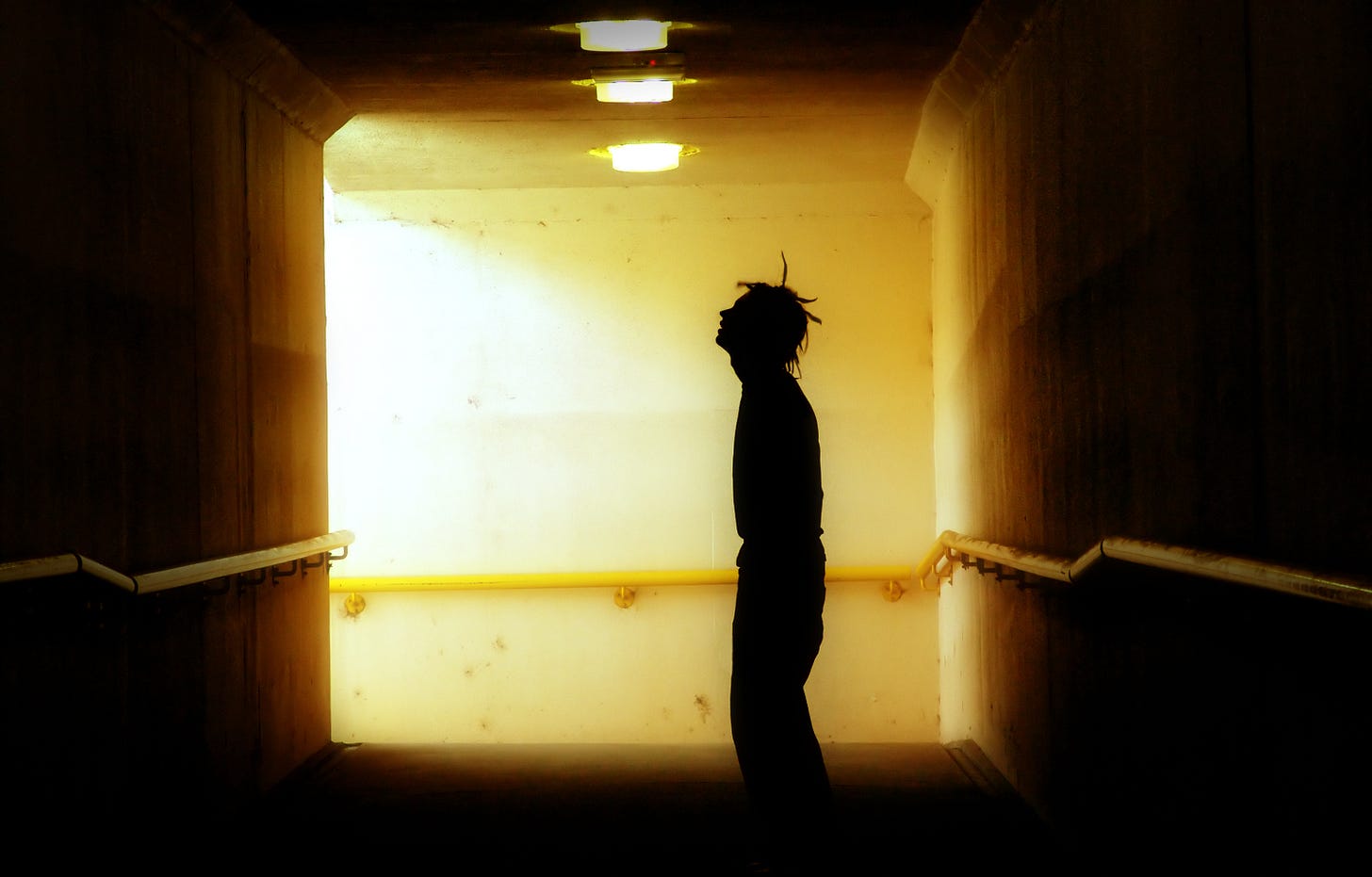Recently a friend of mine asked me, “What do you do if you are feeling alone?”
I thought it was an excellent question to answer for my readers because I am sure my friend is not the only one who has ever felt the pang of loneliness.
I have felt alone many times in my life. I’ve felt the aloneness of going through a divorce. I’ve felt the aloneness of having my parents and brother die. I’ve felt the aloneness of being 1500 miles from my family.
What I’ve learned from having been in this situation many times is that being alone and feeling alone are two entirely different things.
Have you ever been in a crowd of hundreds (or more) and felt totally alone?
Have you ever been alone somewhere that you enjoyed (perhaps in nature if that is your jam) but you didn’t feel alone?
If we think deeply about our experiences with loneliness1, it becomes clear that the mere fact of being alone is not what brings on the feeling of loneliness. What, then, makes the difference between feeling alone or not?
To find the answer, it helps to examine what is the opposite of loneliness. When I looked up antonyms of “loneliness,” there was definitely a pattern:
companionship
company
togetherness
people
fellowship
friendship
community
camaraderie
closeness
intimacy
Every antonym of “loneliness” that I found involves the concept of an “other.” For the most part, this “other” is human, but as any pet mom or dad knows, this other doesn’t have to be a human. Taking the idea of non-human companionship a step further, anyone who has ever felt the presence of a Higher Power in his or her life can attest that the “other” might be a supernatural being or some unseen, benevolent presence.
Looking at loneliness through this lens provides us with a quick and simple antidote to feeling alone: Find a connection to a person, pet, or Providence.
As always, when I say the antidote is quick and simple, I don’t mean to imply that it’s easy.
We each vary in our willingness to connect to others. What often happens is that we get stuck in a rut with regard to our connections with others. We view only this person or that person as “the” one to help us through our lonely periods in life. If that person disappears or is unable to engage with us as they once did, this is when our deep loneliness and intense feelings of being alone can creep in.
The antidote to feeling alone, then, is to reach out to others — even if the folks you normally reach out to are no longer available. Look around you. Who is available? Who is willing? Who is present?
I have a rather excellent group of family and friends, so I rarely feel alone. But when my brother died, I was surprised to find that my two most important connections came from women who I barely knew at the time. They allowed me to talk, they confirmed that my feelings were healthy, and they shared stories of similar losses in their own lives.2
Had I not been willing to open my heart to nearly total strangers during my grief, I would not have found the profound connection and healing that I needed during those difficult first days after my brother died. (Thank you, Jill and Mary, for your kindness during that time.)
Last but not least, for some of us, finding a connection to a Higher Power may be the easiest way to stave off the feelings of being alone. Do you pray every day? Have you explored the characteristics of your own Higher Power? Do you trust the concept of your own Higher Power?
There’s good reason that the phrase “there are no atheists in foxholes” has stood the test of time. When we are stretched to our emotional limits, we often turn to a Power greater than ourselves for help. While our concepts of God can vary wildly, the peace that comes from acknowledging our Higher Power transcends the differences.
The next time you find yourself feeling alone, whether it is a small twinge of loneliness or a deeply rooted feeling of disconnection from everyone and everything, remember the antidote to feeling alone: connection.
Being alone doesn’t guarantee that you will feel alone. Understanding this distinction and being open to potential connections around you is the key to living a life devoid of loneliness.
For the purposes of this post, I am going to use the word “loneliness” and the phrase “feeling alone” synonymously; even though, in my mind, there is a slight difference between the two. “Loneliness” implies a temporary, fleeting state while “feeling alone” has more weight to it.
In other words, if I were to say I felt “lonely” when my boyfriend went out of town, the word implies that I’m missing him, but also that I’m in an emotional state that will likely pass when I get engaged in my favorite hobby. Feeling alone, however, is a state that resists movement, even when engaging options are available. Though “feeling alone” does pass given sufficient time, one is likely to feel more “stuck” in this state than when simply feeling “lonely.”
This was not a case of “misery loves company,” however. When these ladies shared their stories of transcending their grief, it provided hope that I could transcend my own.






